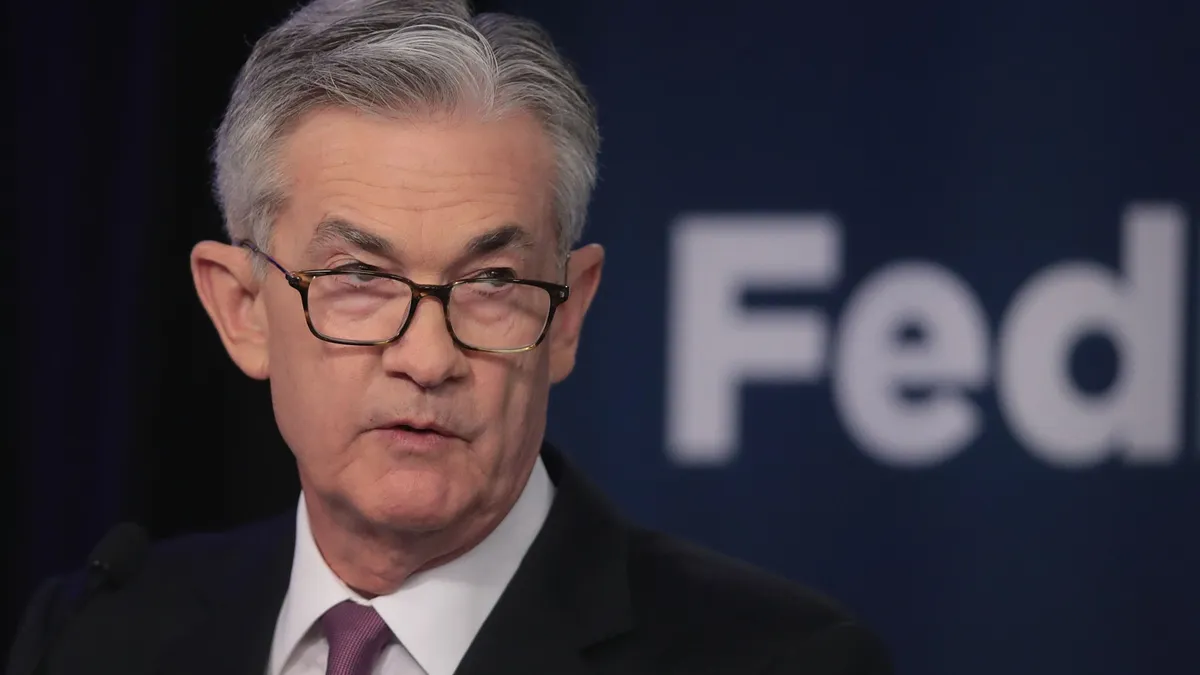Dive Brief:
- Federal Reserve Chair Jerome Powell signaled Thursday that policymakers will likely forgo an additional interest rate hike in a meeting ending Nov. 1 while noting that their fight against inflation has made erratic progress.
- “Given the uncertainties and risks, and how far we have come, the committee is proceeding carefully,” Powell said, referring to the policy-setting Federal Open Market Committee. “We will make decisions about the extent of additional policy firming and how long policy will remain restrictive based on the totality of the incoming data, the evolving outlook and the balance of risks,” he said.
- Powell did not rule out tighter policy in the future. “Additional evidence of persistently above-trend growth, or that tightness in the labor market is no longer easing, could put further progress on inflation at risk and could warrant further tightening of monetary policy,” he said.
Dive Insight:
Powell highlighted the need to balance the risk of tightening too much and triggering a recession with tightening too little and letting inflation flare up again.
“Doing too little could allow above-target inflation to become entrenched and ultimately require monetary policy to wring more persistent inflation from the economy at a high cost to employment,” he said. “Doing too much could also do unnecessary harm to the economy.”
At the same time, Powell noted “bumpy” progress in curbing inflation to the Fed’s 2% goal, describing September data on price pressures as “somewhat less encouraging” than results in prior months.
“I think the evidence is not that policy is too tight right now,” he said in response to a question. “Our issue is right now trying to achieve a sufficiently restrictive stance of policy to bring inflation down to 2% over time — that’s what we’re really focused on.”
Inflation persisted last month at more than twice the Fed’s goal, with the core consumer price index excluding volatile food and energy prices rising at a 4.1% annualized rate.
Powell also highlighted that, despite the most aggressive series of interest rate hikes in four decades, economic growth, consumer spending and payroll gains have all remained strong, exceeding expectations.
“We certainly have a very resilient economy on our hands,” he said, noting that growth in gross domestic produce this year has so far outpaced the long-term trend.
GDP during the third quarter probably rose at a 5.4% annual rate, the Atlanta Fed said Wednesday, increasing its estimate from 4.9% on Oct. 5.
“Economic growth has consistently surprised to the upside this year,” Powell said, noting that retail sales rose at a better-than-expected 0.7% last month compared to August. During the third quarter, retail sales surged at an 8.4% annual rate.
Forecasters expect that the expansion will cool this quarter and next year, Powell said.
An indicator of future economic health fell for the18th straight month in September, bolstering a prediction of a “shallow” recession during the first half of next year, the Conference Board said Thursday.
“So far the U.S. economy has shown considerable resilience despite pressure from rising interest rates and high inflation,” Justyna Zabinska-LaMonica, senior manager of business cycle indicators at the Conference Board, said in a statement. “This trend will not be sustained for much longer.”
Powell said top business executives have recently voiced confidence in U.S. growth and consumer spending. “I talked to several people this week who run companies and they each said the economy remains strong,” he said.
Members of the FOMC are scheduled to gather for a two day meeting beginning Oct. 31. The FOMC has raised the benchmark rate since March 2022 from near zero to a range between 5.25% and 5.5%, a 22-year high.












